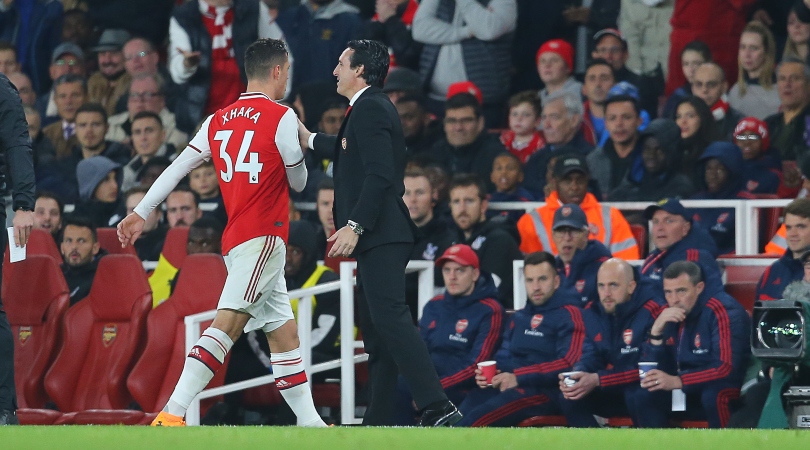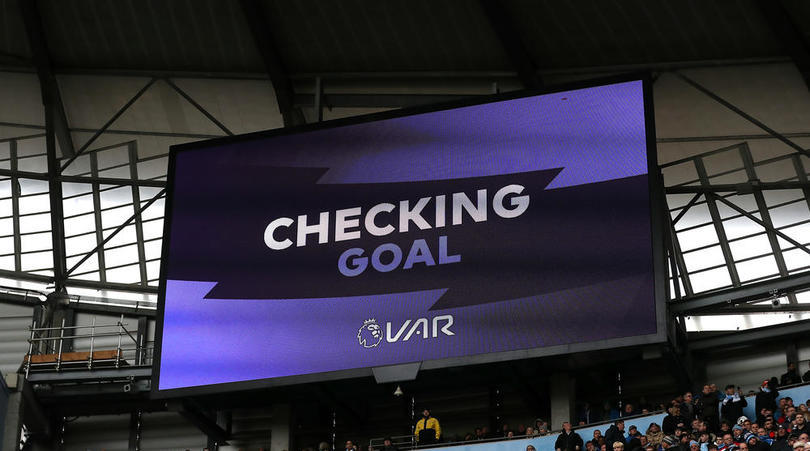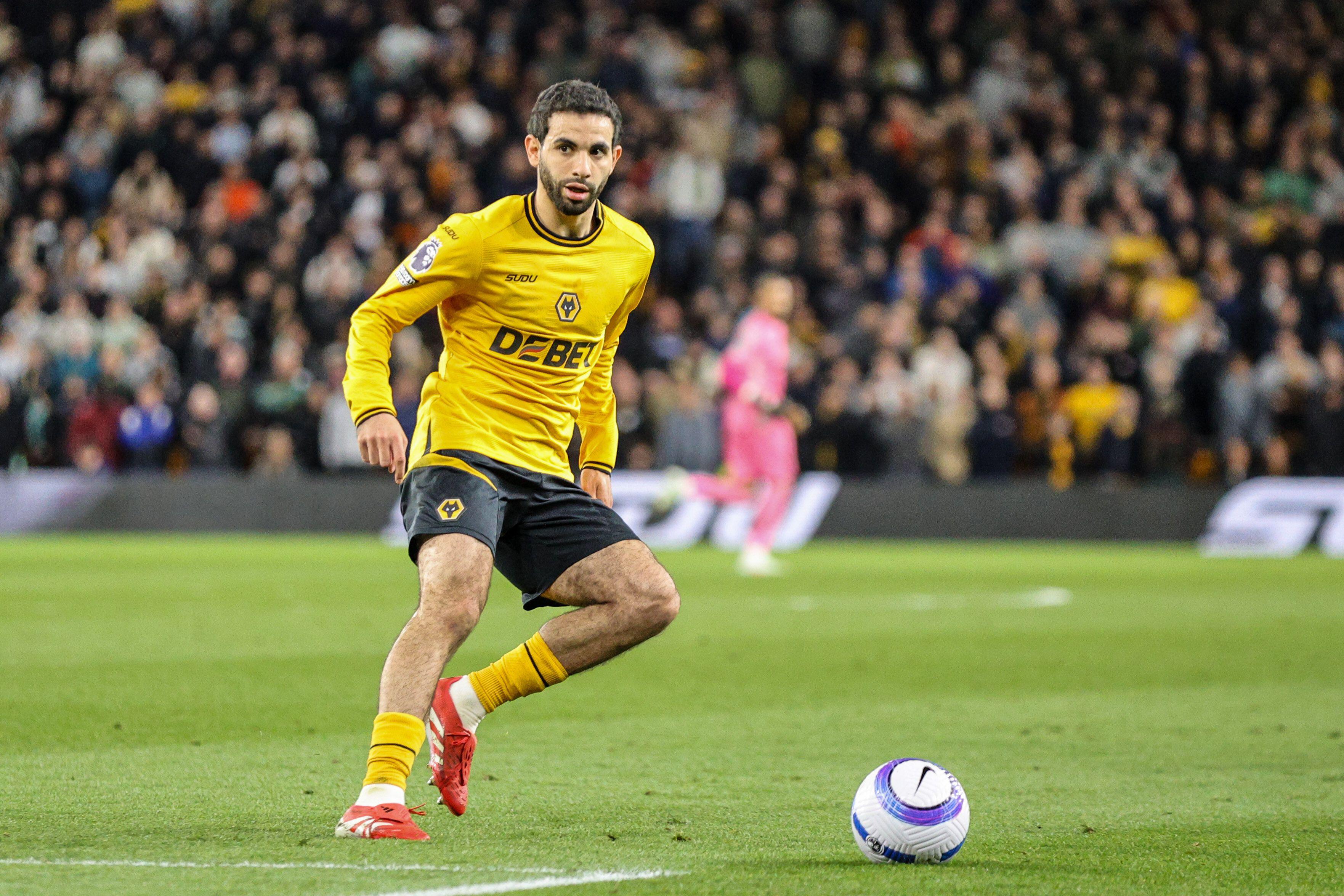Granit Xhaka may have played his last game for Arsenal – but how much of this saga could have been avoided?
The midfielder has been stripped of the captaincy and will leave under a cloud of vitriol. And when the scale of abuse he suffered became clear, the tone of the discussion didn't change

"I had a meeting with him and told him he is no longer in the captain's group. He accepted my decision. I needed to take a decision and now it's closed."
With that, Granit Xhaka’s short, unhappy time as Arsenal’s captain ended.
Whether it was the right or wrong decision is really secondary to the recognition that, unfortunately, because of how football is, his position had become untenable. Not just as captain, but as an Arsenal player. Almost certainly, Xhaka will be loaned out as soon as the January transfer window opens and, most likely, back to the Bundesliga where his stock remains relatively high.
Maybe it’s worth dwelling on the mechanics of this situation. Not the practical reality, which is that Pierre-Emerick Aubameyang has replaced Xhaka as captain, but the forces which compelled Unai Emery to remove the latter from the leadership group.
Context is important. The events of that game against Crystal Palace speak for themselves: the failure to leave the pitch quickly, the booing, the reaction. That was a fairly formulaic situation and without any further detail it’s hard to argue with Emery’s decision.
But a complication does exist in the nature of the abuse Xhaka had received in the past. He referenced some of the insults with which he was targeted in his original statement. We needn’t dwell on them here, other than to say that they are the true malignancy in modern football.
Perhaps this isn’t the best example with which to be making this point. In fact, on the basis of how Xhaka’s promotion to the captaincy was handled and what it was seemingly based on, it definitely isn’t. Nevertheless, it evidences again that the one issue which is never addressed, the problem that the game continually bends itself around, is the nature of the criticism suffered by its players. Actually, over time it's become normal, as if a core skill of being a professional footballer is the need to tolerate the block-capital rantings of the emotionally incontinent.
Get FourFourTwo Newsletter
The best features, fun and footballing quizzes, straight to your inbox every week.
How can that be right? How has it become just 'one of those things' for athletes to receive the kind of messages that Granit Xhaka did. And how has this situation not begun a broader conversation, in which it's considered how this became quite so normal.
Xhaka has been stripped of the captaincy. Fine. He will most likely never play for Arsenal again. Okay. But once the nature of the abuse he was suffering was made public, how did the tone of this discussion not change?
Instead of it being a placating exercise, in which Arsenal’s relationship with their supporters was the primary (and only) concern, it could have been handled in a way which condemned the actions of those who provoked their captain to the point of an obvious misjudgement.
It’s such a strange contradiction. On the one hand, football clubs spend most of their time making it abundantly clear that the individual fan is of little importance. That, as long as someone pays for the ticket, buys the shirt and stands in line on the concourse, then it doesn’t really matter who.
On the other hand, they are also terrible appeasers. The unintended message left by this Xhaka decision, however you judge its specifics, is that there is never a point at which a player is owed compassion. That if he reacts to something, no matter how grotesque, he is always wrong and must always be disciplined. In this instance, he must be pushed out of sight and mind, like some pariah guilty of causing terrible offence.
Again, maybe this isn’t the right example to be using. The vast majority of Arsenal supporters are, of course, fully entitled to be annoyed with their captain for swearing at the crowd and throwing their club colours to the floor. Most of us would probably do the same. But most of us wouldn't weaponise our frustrations with a performance into wishing illness on a player's son or daughter. That aspect has been underplayed. Conversely, Xhaka's gesture - which outside of football's hyper-sensitive atmosphere would be considered relatively benign - has been embellished.
The crowd booed and he returned fire. So what? In the grand scheme of things, sowhat? It was something to be annoyed about at the time, but how ridiculous that it seems entirely logical that he should have to leave the club as quickly as possible. Particularly given the background to his reaction and what the source of his petulance probably was.
At some point, football does need to take a stand. It needs to show itself it to be aware of the problems bred by the game’s ubiquity and the rising toxicity within the surrounding culture. It also needs to understand that even when these voices aren’t in a majority, it's important to be brave enough to say: 'no, on the basis of what our captain has endured, this – precious supporter, sending abusive messages on social media – is your problem to get over. These are the indirect consequences of your actions.'
Maybe there isn't a solution. Maybe all the venom is a symptom of something outside football and, as a result, beyond the game's control. But maybe it would also be easier to tolerate if the sport didn't just shrug its shoulders and clutch its pearls whenever this behaviour draws a response.
While you're here, why not take advantage of our brilliant subscribers' offer? Get the game's greatest stories and best journalism direct to your door for only £9.50 every quarter. Cheers!
NOW READ...
ANALYSIS How Jurgen Klopp replaced Jose Mourinho as Pep Guardiola's greatest opponent
QUIZ Can you name the 25 teenagers to appear in the Premier League so far this season?
GUIDE Premier League live stream best VPN: how to watch every game from anywhere in the world
Seb Stafford-Bloor is a football writer at Tifo Football and member of the Football Writers' Association. He was formerly a regularly columnist for the FourFourTwo website, covering all aspects of the game, including tactical analysis, reaction pieces, longer-term trends and critiquing the increasingly shady business of football's financial side and authorities' decision-making.

